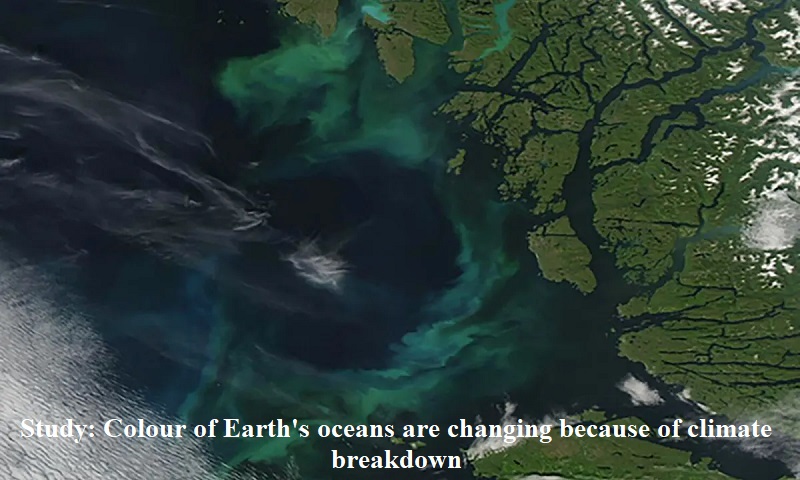
New research indicates that the Earth’s oceans are undergoing a color change due to climate breakdown. The study reveals that the deep blue hue of the sea is gradually transitioning to a greener shade. It further suggests that climate change is impacting regions in the low latitudes near the equator.
BB Cael, a scientist at the National Oceanography Centre at the University of Southampton and the author of the study published in Nature, emphasized that the concern lies not in the color itself but rather in the reflection of ecosystem changes that the color represents.
Previous research has primarily focused on changes in ocean greenness, using chlorophyll found in plankton as an indicator of climate change impacts. However, Cael’s team delved into observations recorded by NASA’s Modis-Aqua satellite, which offers comprehensive data, to explore patterns of color change in the ocean using a wider color spectrum, encompassing red and blue.
Plankton of different sizes scatter light in distinct ways, and plankton with various pigments absorb light differently. By studying these color changes, scientists can gain insight into shifts in plankton populations worldwide. Phytoplankton, in particular, holds significant importance for ocean ecosystems as it forms the foundation of many food chains.
Cael noted that changes in color are significantly evident in nearly all tropical and subtropical ocean areas, encompassing more than 56% of the world’s oceans, exceeding the total land area on the planet. While many regions exhibit a discernible “greening effect,” there are also instances where the blue or red hues are diminishing or intensifying.
Although these changes may not be drastic enough to cause widespread ecosystem destruction, they provide additional evidence that human activities are likely affecting significant portions of the global biosphere in ways that are not yet fully understood.
Michael J Behrenfeld, an ocean productivity researcher at Oregon State University, acknowledged that the study extensively documents another consequence of climate change. However, it remains unclear how pronounced these changes are and what specific processes within the ocean are causing them.
NASA plans to launch an advanced satellite mission called Pace (plankton, aerosol, cloud, ocean ecosystem) in January 204, which will measure hundreds of colors in the ocean. This development will aid in making more meaningful ecological inferences regarding the observed changes, representing a significant next step in understanding the ecological and biogeochemical implications of these phenomena, according to Cael.

Post Your Comments